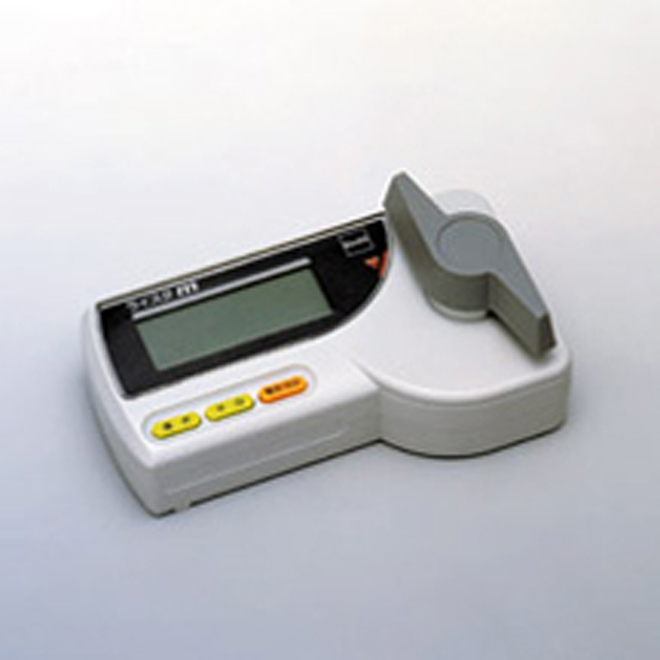Leading 10 Advantages of Using a Moisture Meter for Exact Measurements in Your Home
Leading 10 Advantages of Using a Moisture Meter for Exact Measurements in Your Home
Blog Article
The Ultimate Guide to Dampness Meters: A Comprehensive Overview and How They Can Save You Money
In the realm of structure maintenance, building and construction, and various industries, the relevance of precisely determining wetness degrees can not be overemphasized. Dampness meters act as indispensable tools in detecting and monitoring moisture content in materials, assisting in stopping pricey problems and guaranteeing the quality of products. Comprehending the nuances of various kinds of wetness meters, their applications, and the prospective cost-saving benefits they supply can be a game-changer for organizations and professionals alike. Uncovering just how these gadgets can not only enhance procedures yet also add to financial savings is a trip worth starting.
Sorts Of Wetness Meters
One usual type is the pin-type wetness meter, which determines the electric resistance between two pins inserted right into a product. Pinless moisture meters, on the other hand, use electro-magnetic sensor plates to check a bigger location without causing damages to the material's surface.

Infrared dampness meters determine the thermal homes of a material to identify its dampness material non-invasively, making them valuable for applications where pin or pinless meters might not be ideal. Understanding the various types of wetness meters offered can help industries pick the most proper device for their specific wetness measurement needs.

Advantages of Making Use Of Wetness Meters
Dampness meters provide very useful benefits in properly monitoring and analyzing moisture levels in diverse products and atmospheres (Moisture Meter). One of the key advantages of using wetness meters is the prevention of potential damage triggered by excess moisture. By discovering and resolving high moisture levels beforehand, dampness meters aid to avoid mold development, rot, and structural damages in buildings, saving both time and money on fixings. Additionally, dampness meters aid in making certain the quality of materials throughout building or manufacturing procedures. By precisely determining wetness material, these devices aid keep the integrity of wood, drywall, concrete, and other materials, minimizing the danger of failures or issues.
In addition, making use of dampness meters can cause enhanced energy performance. By identifying locations with high moisture degrees, such as leaks or inadequate insulation, modifications can be made to improve energy conservation and lower utility expenses. In agricultural settings, dampness meters play an essential role in optimizing plant returns by enabling farmers to monitor soil moisture degrees and make educated watering decisions. Overall, the advantages of using dampness meters span across various industries, supplying cost-efficient solutions and promoting much better quality assurance techniques.
Exactly How to Pick the Right Dampness Meter
Selecting the appropriate dampness meter includes thinking about crucial aspects such as product compatibility, dimension variety, and calibration accuracy. When picking a dampness meter, it's important to make sure that the meter appropriates for the particular material you will be testing. Various products have varying electric homes that can influence moisture readings, so picking a meter created for your material is critical for exact outcomes. Furthermore, take into consideration the measurement series of the moisture meter. Make certain that the meter can spot wetness degrees within the variety required for your applications. Calibration accuracy is an additional important aspect to remember. Select a wetness meter with dependable calibration to make certain specific and constant readings. Some meters might require periodic calibration changes, so recognizing the calibration process is necessary. By meticulously assessing these aspects, you can choose a moisture meter that meets your demands and provides accurate dampness dimensions for your tasks.
Correct Methods for Wetness Meter Use

Cost Financial Savings With Moisture Meter Applications
How can the calculated application of wetness meters lead to substantial cost savings across various sectors? In the agriculture sector, moisture meters aid in establishing the ideal time for harvesting crops, protecting against excess or over-drying moisture that can influence the last item's high quality.
Similarly, in construction, dampness meters help stop expensive damages by spotting moisture levels in structure materials, such as timber or concrete, which can cause structural problems if not dealt with quickly. By identifying trouble areas early on, contractors can take restorative steps to avoid comprehensive repairs or substitutes, inevitably saving money and time.
Moreover, in the food processing sector, wetness meters are vital for keeping track of product quality and guaranteeing compliance with safety guidelines. By precisely determining wetness content in food, makers can stop wasting, keep quality, and minimize waste, leading to considerable price savings. On the whole, the tactical application of dampness meters is a valuable financial investment that can lead to significant price decreases and enhanced efficiency throughout numerous markets.
Conclusion
Finally, dampness meters are useful tools for finding and measuring dampness levels in different products. By learn this here now using the ideal wetness meter and adhering to correct techniques, users can effectively avoid costly damages triggered by excess dampness. Spending in a quality moisture meter can bring about considerable price financial savings in the future by determining potential issues beforehand and enabling punctual removal. Ultimately, moisture meters are important tools for keeping the honesty and long life of frameworks and products.
Dampness meters offer as indispensable devices in discovering and checking moisture web content in products, aiding in protecting against costly problems and ensuring the top quality of items. Infrared moisture meters gauge the thermal properties of a material to identify its moisture material non-invasively, making them valuable for applications where pin or pinless meters may not be appropriate.Moisture meters supply right here indispensable benefits in properly monitoring and evaluating dampness degrees in diverse materials and settings. In agricultural settings, moisture meters play an essential role in maximizing plant returns by enabling farmers to keep an eye on dirt dampness degrees and make informed irrigation decisions.In verdict, dampness meters are beneficial devices for spotting and determining dampness levels in numerous products.
Report this page